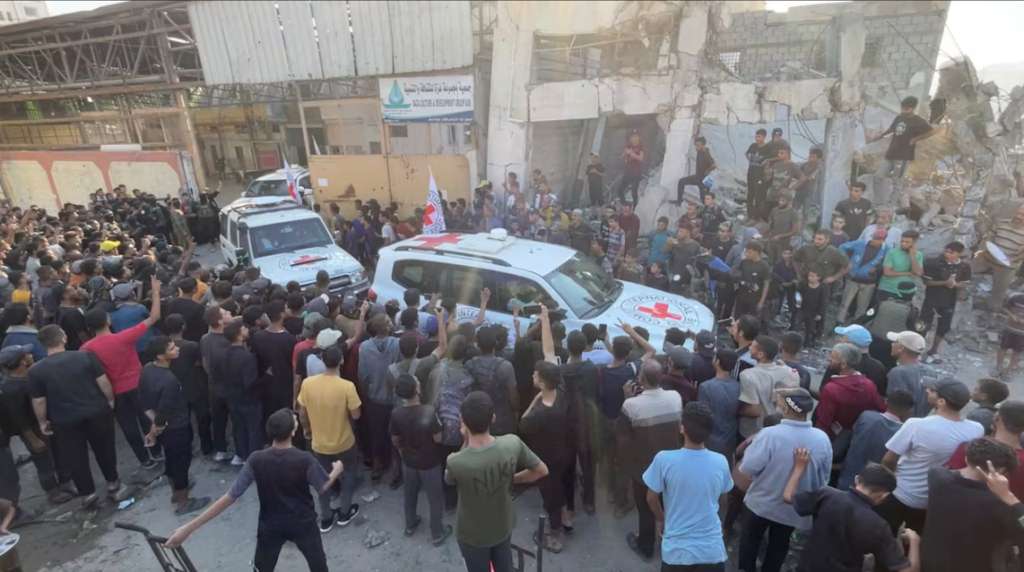
Ramallah, Oct. 13 – The Islamic Resistance Movement (Hamas) released the last group of 20 Israeli prisoners alive today, as part of an exchange with Benjamin Netanyahu's government for nearly 2,000 Palestinians.
Early this morning, the Islamist militia published the names on a list and then handed the first seven to the International Committee of the Red Cross at 8:00 a.m. local time, followed by the rest about two hours later.
The Saudi television channel Al Hadath revealed that in the afternoon, several of the bodies of Israelis held by Palestinian militias in Gaza, numbering 28, will also be handed over.
Hamas requested time to find the bodies of several of them, whose whereabouts are unknown due to the destruction caused in Gaza.
In this regard, The Times of Israel reported that authorities informed some families of the deceased that their loved ones' bodies would likely not be handed over in the coming hours.
For its part, the government of Benjamin Netanyahu will release nearly two thousand Palestinians, 250 of whom are serving long sentences and 1,718 people arrested in Gaza during the course of the war, including women and minors, as well as the remains of about 360 Gazans.
The exchange is part of a broader agreement reached last week by mediators—the United States, Turkey, Qatar, and Egypt—to end the aggression against the Gaza Strip.
The exchange coincides with US President Donald Trump's visit to Israel and then Egypt to promote his peace plan, which has many open questions for its second phase.
The list of names published by Israel for the release drew criticism among Palestinians, especially Hamas, because it does not include seven high-profile prisoners.
Among the latter are Marwan Barghouti, one of the most popular figures in the ruling Fatah Movement, and Ahmed Saadat, secretary general of the Popular Front for the Liberation of Palestine (PFLP).
Known as the Palestinian Mandela, Barghouti has been behind bars for over 23 years, after being convicted for allegedly leading the campaign of attacks against Israeli troops in the occupied West Bank during the Second Intifada (uprising, in Arabic), which took place from 2000 to 2005.
For his part, Saadat was arrested in 2002 and accused of ordering the killing a year earlier of the then Israeli Minister of Tourism, the far-right Reehavan Zeevi, who was killed in a PFLP operation in response to the assassination of its leader, Abu Ali Mustafa.
The latter was killed in an attack on his office by two Israeli helicopters, as part of Israel's strategy of targeted killings during the Intifada. (Text and photo: PL)